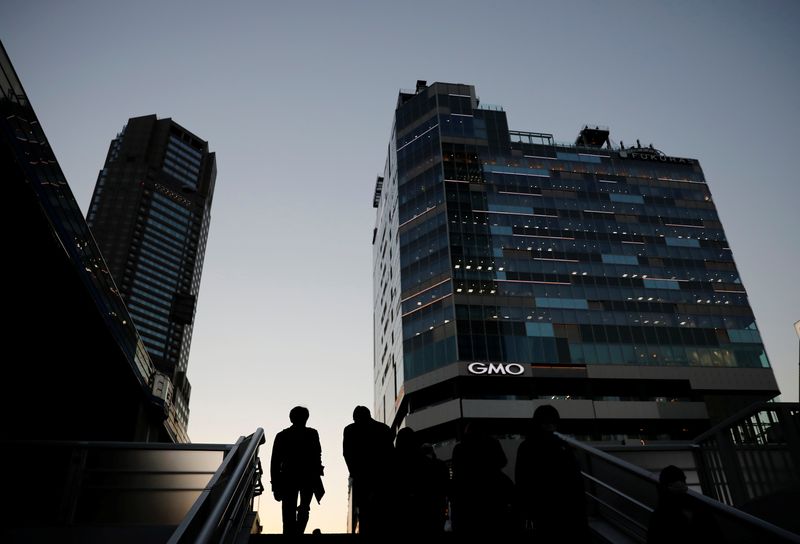By Rocky Swift
TOKYO (Reuters) - Japanese firms overwhelmingly support increasing defence spending amid heightened sabre-rattling in Asia, according to a Reuters monthly poll on Thursday, which also showed half of companies expect the yen's decline to hurt profits.
North Korea has launched seven ballistic missile tests since Sept. 25, and last month declared itself a nuclear weapons state. Meanwhile, Chinese warships have made repeated incursions into Japanese waters and concerns remain that Beijing will try to take control of democratically-governed Taiwan, which it claims as Chinese territory, by force.
Amidst those threats and rising geopolitical tensions following Russia's invasion of Ukraine, Prime Minister Fumio Kishida has pledged to "substantially" boost defence spending, which remains under his ruling party's goal of 2% of GDP.
The latest Reuters poll showed that 81% of Japanese companies were in favour of raising defence spending to that level. That should be paid for through reallocations from existing funds, 67% of firms said, the most popular answer among options that included options to raise various taxes.
It was the first time the question about the size of the defence budget appeared in the Reuters poll, but the result showed a marked change from an August 2018 survey when 23% of firms said defence budgets should be cut to pay for infrastructure investment.
"In these turbulent times when some authoritarian nations continue to carry out outrageous actions, there's no doubt that we have to take action to protect ourselves," wrote a manager at an industrial ceramics company, responding on condition of anonymity.
During the time span of the latest survey, North Korea launched a ballistic missile that passed over the Japanese mainland for the first time in five years. And in last month's poll, three quarters of firms said they were concerned about a geopolitical crisis around Taiwan.
The yen's rapid depreciation is still weighing heavily on business sentiment at companies and their wherewithal to consider wage increases that have been a key platform of Kishida's administration.
The yen has been hammered due to the growing gap between U.S. and Japanese interest rates, losing about 20% of its value against the dollar since the start of this year. The yen crossed 146 per dollar on Wednesday, past the 24-year low that prompted Japan to intervene in markets last month to boost its currency.
Half of firms polled expect the weak yen to hurt profits through the end of January, compared with 29% who expected it would boost earnings.
That is not much changed from a Reuters poll in April, when 48% of firms expected the yen's drop to hurt earnings, versus 23% who expected a boost.
SLUGGISH GROWTH
Among those hurt by the weak yen, 64% said they were coping by raising prices, the most common response. Diversifying sources of raw materials was cited by 28% of firms, the same percentage who said they were employing energy and labour conservation efforts.
Three quarters of firms, polled before the yen hit its fresh low this week, said they could not compensate for the currency's drop beyond the 145 mark.
"Currently, we are responding by passing on the higher prices, but we've reached a tolerance limit for price hikes, and this could be a major factor in profit declines going forward," said a manager at a wholesaling company.
On employee wages, 61% of respondents said they were considering increases but were undecided on the level. The rest said they planned no wage hikes or increases of 5% or less.

Just 23% of respondents said current business conditions were good, with 21% expecting the operating environment to be favourable through January.
The Reuters Corporate Survey, conducted for Reuters by Nikkei Research, canvassed 495 big, non-financial Japanese firms on condition of anonymity, allowing them to speak more freely.